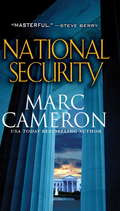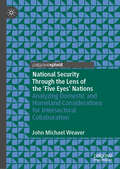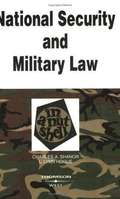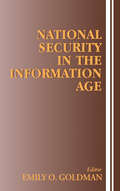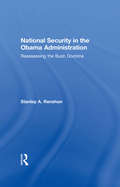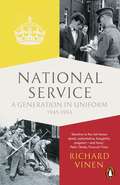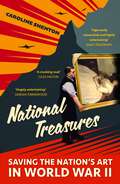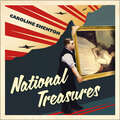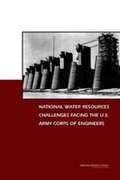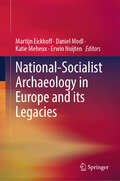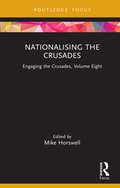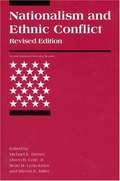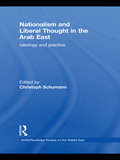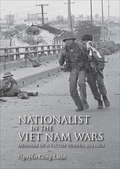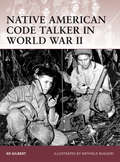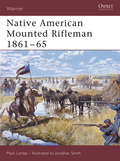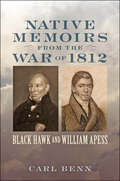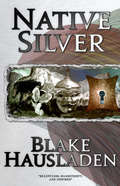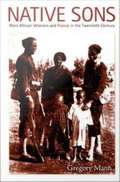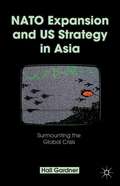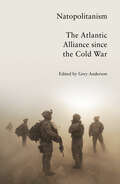- Table View
- List View
National Security
by Marc Cameron"Fascinating characters with action off-the-charts. Masterful. . .an entertaining romp." --Steve BerryWhen Terrorism Goes Viral, One Man Goes Ballistic.They can strike anytime, anywhere. A public landmark. A suburban shopping mall. And now, the human body itself. Three Middle Eastern terrorists have been injected with a biological weapon, human time bombs unleashed on American soil. They are prepared to die. To spread their disease. To annihilate millions. If America hopes to fight this enemy from within, we need a new kind of weapon. Meet Special Agent Jericho Quinn. Air Force veteran. Champion boxer. Trained assassin. Hand-picked for a new global task force that, officially, does not exist, Quinn answers only to the Director of National Intelligence and the U.S. President himself. His methods are as simple, and as brutal, as his codename. The Hammer."One of the hottest new authors in the thriller genre. . .terrifying. . .in one word: Awesome." --Brad ThorA native of Texas, Marc Cameron has spent over twenty-five years in law enforcement, the last twenty with the federal government. His assignments have taken him from rural Alaska to Manhattan, from Canada to Mexico and points in between. A second degree black belt in jujitsu, he often teaches defensive tactics to other law enforcement agencies and civilian groups. Cameron presently lives in the Pacific Northwest with his wife and BMW motorcycle.
National Security Through the Lens of the ‘Five Eyes’ Nations: Analyzing Domestic and Homeland Considerations for Intersectoral Collaboration
by John Michael WeaverThis book analyzes the ‘Five Eyes’ nations’ concerns and policies relating to national security threats through an interdisciplinary theoretical engagement with the Political, Information, Security and Economic (PISE) Model. Through the analysis of secondary data sources such as scholarly and government reports, policy documents, press releases and interviews, the author analyzes the five case studies—Australia, Canada, New Zealand, UK, and the USA—to determine how and why nations use the PISE variables to shape favorable homeland security outcomes, to determine what the points of homeland intersectoral collaboration are among the ‘Five Eyes’ nations. In so doing, Weaver determines that although the ‘Five Eyes’ countries have concerns about homeland security and each, individually, identifies threats and hazards, they do also employ collaborative measures to build resilience and increase efforts to prepare for anticipated security breaches.
National Security and Military Law in a Nutshell
by Charles A. Shanor L. Lynn HogueThis book provides authoritative coverage of the Constitution and national security, entering the military, and service members' rights. Text also discusses the military criminal justice system, discharge, and compensation for injury or death. An ideal overview for practitioners, law students in specialized courses, cadets at military academies or in college ROTC programs, and lawyers preparing to enter the Judge Advocate General's Corps.
National Security in the Information Age
by Emily O. GoldmanAs the activities of individuals, organizations, and nations increasingly occur in cyberspace, the security of those activities is becoming a growing concern. Political, economic and military leaders must manage and reduce the level of risk associated with threats from hostile states, malevolent nonstate actors such as organized terrorist groups or individual hackers, and high-tech accidents. The impact of the information technology revolution on warfare, global stability, governance, and even the meaning of existing security constructs like deterrence is significant. These essays examine the ways in which the information technology revolution has affected the logic of deterrence and crisis management, definitions of peace and war, democratic constraints on conflict, the conduct of and military organization for war, and the growing role of the private sector in providing security.
National Security in the Obama Administration: Reassessing the Bush Doctrine
by Stanley A. RenshonThe Bush Doctrine is dead! At least that's what critics hope. But while new U.S. national security challenges emerge, many post-9/11 threats still persist and the policies of George W. Bush offer one set of strategic answers for how President Obama can confront those dangers. Neither a polemic nor a whitewash, this book provides a careful analysis of the Bush Doctrine--its development, application, and rationale--and assesses its legacy: How will Obama respond to the many foreign policy challenges that await him? Through an examination of psychology as much as policy, Renshon gives us the first comparative analysis of the Bush Doctrine and the developing Obama Doctrine. The book analyzes the range of national security issues Obama will face and the political divisions that permeate U.S. national security debates. It is essential reading for anyone looking to understand how presidents assess security risks generally and how Obama specifically is likely to adapt the Bush Doctrine to his own worldview.
National Security under the Obama Administration
by Bahram M. Rajaee Mark J. MillerAn initial assessment of President Obama's foreign and national security policy, this volume brings together a unique collection of American and non-American scholars to examine various institutional, regional, and major policy dimensions of contemporary US engagement with the world. All contributors have been associated with a series of US foreign and national security policy institutes convened at the University of Delaware, made possible by grants received from the US Department of State and through the generosity of the University of Delaware's Institute for Global Studies. The contributions reflect the constructive dialogue nurtured throughout the institutes.
National Service: A Generation in Uniform 1945-1963
by Richard VinenSUNDAY TIMES BOOKS OF THE YEAR and FINANCIAL TIMES BOOKS OF THE YEAR 2014WINNER OF THE TEMPLER MEDAL AND THE WOLFSON HISTORY PRIZE Sunday Times Top 10 BestsellerRichard Vinen's new book is a serious - if often very entertaining - attempt to get to grips with the reality of National Service, an extraordinary institution which now seems as remote as the British Empire itself. With great sympathy and curiosity, Vinen unpicks the myths of the two 'gap years', which all British men who came of age between 1945 and the early 1960s had to fill with National Service. Millions of teenagers were thrown together and under often brutal conditions taught to obey orders and to fight. The luck of the draw might result in two years of boredom in some dilapidated British barracks, but it could also mean being thrown into a dangerous combat mission in a remote part of the world.By any measure National Service had a huge impact on the nature of British society, and yet it has been remarkably little written about. As the military's needs wound down and Britain ceased to be a great power, National Service came to be seen as just an embarrassment, and its culture of rank and discipline something which many British people were by the 1960s running away from. But without a proper understanding of National Service the story of post-war Britain barely makes sense. Richard Vinen provides that missing book. It will be fascinating to those who endured or even enjoyed their time in uniform, but also to anyone wishing to understand the unique nature of post-war Britain.
National Treasures: Saving The Nation's Art in World War II
by Caroline Shenton'Geeks triumph over the forces of darkness: nothing could have given me greater pleasure. Combining an exciting story with scrupulous research, Caroline Shenton has done her unlikely heroes proud' - Lucy WorsleyAs Hitler prepared to invade Poland during the sweltering summer of 1939, men and women from across London's museums, galleries and archives formulated ingenious plans to send the nation's highest prized objects to safety. Using stately homes, tube tunnels, slate mines, castles, prisons, stone quarries and even their own homes, a dedicated bunch of unlikely misfits packed up the nation's greatest treasures and, in a race against time, dispatched them throughout the country on a series of top-secret wartime adventures. National Treasures highlights a moment from our history when an unlikely coalition of mild-mannered civil servants, social oddballs and metropolitan aesthetes became the front line in the heritage war against Hitler. Caroline Shenton shares the interwoven lives of ordinary people who kept calm and carried on in the most extraordinary of circumstances in their efforts to save the Nation's historic identity.
National Treasures: Saving The Nation's Art in World War II
by Caroline ShentonThe gigantic covert wartime mission led by the men and women of London's museums and galleries to save the nation's priceless heritage.As Hitler prepared to invade Poland during the sweltering summer of 1939, men and women from across London's museums, galleries and archives formulated ingenious plans to send the nation's highest prized objects to safety. Using stately homes, tube tunnels, slate mines, castles, prisons, stone quarries and even their own homes, a dedicated bunch of unlikely misfits packed up the nation's greatest treasures and, in a race against time, dispatched them throughout the country on a series of top-secret wartime adventures. National Treasures highlights a moment from our history when an unlikely coalition of mild-mannered civil servants, social oddballs and metropolitan aesthetes became the front line in the heritage war against Hitler. Caroline Shenton shares the interwoven lives of ordinary people who kept calm and carried on in the most extraordinary of circumstances in their efforts to save the Nation's historic identity.(P) 2021 Hodder & Stoughton Limited
National Water Resources Challenges Facing the U.S. Army Corps of Engineers
by Engineering Committee on U.S. Army Corps of Engineers Water Resources Science PlanningThe U. S. Army Corps of Engineers (Corps) is responsible for construction, operations, and maintenance of much of the nation's water resources infrastructure. This infrastructure includes flood control levees, multi-purpose dams, locks, navigation channels, port and harbor facilities, and beach protection infrastructure. The Corps of Engineers also regulates the dredging and filling of wetlands subject to federal jurisdictions. Along with its programs for flood damage reduction and support of commercial navigation, ecosystem restoration was added as a primary Corps mission area in 1996. The National Research Council (NRC) Committee on U. S. Army Corps of Engineers on Water Resources Science, Engineering, and Planning was convened by the NRC at the request of the Corps of Engineers to provide independent advice to the Corps on an array of strategic and planning issues. National Water Resources Challenges Facing the U. S. Army Corps of Engineers surveys the key water resources challenges facing the Corps, the limits of what might be expected today from the Corps, and future prospects for the agency. This report presents several findings, but no recommendations, to the Corps of Engineers based on initial investigations and discussions with Corps leadership. National Water Resources Challenges Facing the U. S. Army Corps of Engineers can serve as a foundational resource for the Corps of Engineers, U. S. Congress, federal agencies, and Corps project co-sponsors, among others.
National Will to Fight: Why Some States Keep Fighting and Others Don’t
by Paul Frank Madden Lander McNerney Connable Zimmerman Posard Castillo Blum Fernandes Seol ParasilitiIn this report, RAND researchers explore the factors, contexts, and mechanisms that shape a national government’s decision to continue or end military and other operations during a conflict (i.e., national will to fight). To help U.S. leaders better understand and influence will to fight, the researchers propose an exploratory model of 15 variables that can be tailored and applied to a wide set of conflict scenarios.
National-Socialist Archaeology in Europe and its Legacies
by Martijn Eickhoff Daniel Modl Katie Meheux Erwin NuijtenThis edited volume is dedicated to national-socialist archaeology as a Europe-wide phenomenon. It analyses national-socialist attempts to denationalize the archaeologies of European nations by creating a new unifying European archaeology on a racial basis.From the beginning of the nineteenth century, archaeology began to develop into an important force behind processes of nation building. At the same time, structures of transnational academic collaboration contributed strongly to the internal dynamics of the research field, which was primarily organized on a national basis.In those European countries that were confronted with national-socialist occupation and repression between 1939 and 1945, these transnational archaeological networks were to prove crucial for the development of national-socialist archaeological policies.This volume will reveal how national-socialist archaeology was to an extent valued positively in its time as highly innovative, even influencing the archaeology of non-occupied countries. Although in the final instance, it generally failed to displace the national archaeologies in Europe, the volume also analyses the long-term impact of national-socialist rule on the development of European archaeology. How did the attempts to create a unified European archaeology after 1945 continue to influence networks, methods and terminologies, institutional structures, or popular representations of the early past?
Nationalising the Crusades: Engaging the Crusades, Volume Eight (Engaging the Crusades)
by Mike HorswellEngaging the Crusades is a series of concise volumes (up to 50,000 words) which offer initial windows into the ways in which the crusades have been used in the last two centuries, demonstrating that the memory of the crusades is an important and emerging subject. Together these studies suggest that the memory of the crusades, in the modern period, is a productive, exciting, and much needed area of investigation. Despite their ‘intrinsic internationalism’, the crusades have long been conscripted for nationalist ends. The last decade has seen an upsurge in usage of the crusades to justify and inspire violence played out within and across national contexts. This volume furthers study of nationalist uses of the crusades and crusading by broadening the focus of study beyond north-western Europe and by showcasing different approaches to illustrate how the memory of the crusades has been employed within and between nations. This takes the form of tightly focused case studies and broader overviews covering the ambivalent role of foreign crusaders in Portuguese commemorations of the battle of Lisbon in 1947, Russian holy war rhetoric and theology, Zionist perceptions of the crusader castle of ‘Athlit, the role of individuals as ‘cultural brokers’ of crusader heritage amidst European imperial competition, and how crusading as a part of European medievalism was received and reflected in Japan in the late nineteenth and early twentieth centuries. This book will be of interest to scholars and students considering national identity, medievalism, and religious violence and to those with specific interest in the contexts of each chapter.
Nationalism and Ethnic Conflict (Revised Edition)
by Michael E. Brown Owen R. Coté Sean M. Lynn-Jones Steven E. MillerMost recent wars have been complex and bloody internal conflicts driven to a significant degree by nationalism and ethnic animosity. Since the end of the Cold War, dozens of wars -- in Bosnia, Kosovo, Rwanda, Somalia, the former Soviet Union, and elsewhere -- have killed or displaced millions of people. Understanding and controlling these wars has become one of the most important and frustrating tasks for scholars and political leaders. This revised and expanded edition of Nationalism and Ethnic Conflict contains essays from some of the world's leading analysts of nationalism, ethnic conflict, and internal war. The essays from the first edition have been updated and supplemented by analyses of recent conflicts and new research on the resolution of ethnic and civil wars. The first part of the book addresses the roots of nationalistic and ethnic wars, focusing in particular on the former Yugoslavia. The second part assesses options for international action, including the use of force and the deployment of peacekeeping troops. The third part examines political challenges that often complicate attempts to prevent or end internal conflicts, including refugee flows and the special difficulties of resolving civil wars.
Nationalism and Liberal Thought in the Arab East: Ideology and Practice (SOAS/Routledge Studies on the Middle East)
by Christoph SchumannThis book explores the complex relationship between nationalism and liberal thought in the Arab East during the first half of the twentieth century. Examining this formative period through reformist Islam, Arab secularism and Arab literature, the book situates major shifts in the political ideologies and practices of Arab liberals within a historical context. Contributions from renowned scholars in the field show how rather than fundamentally contradicting each other, these two schools of thought are closely linked. Many key demands of liberalism - most notably constitutionalism, the rule of law, individual rights, and popular participation - have been central to the nationalist agenda, while other issues have proven more controversial: inter-confessional tolerance, secularism, and the goals of state-sponsored education. Although a strong nation-state was pivotal to the nationalist imagination during most of the twentieth century, a powerful critique of unchecked state power took shape as Arab countries experienced a half-century of authoritarian government. In analyzing these issues, the chapters demonstrate how the rise and fall of liberalism across the region was not determined solely by religion or culture, but by the ideas of influential intellectuals and politicians. Advancing our understanding of political ideology and practice in the Arab East, this volume will be of great interest to students and scholars of political science, history and the Middle East.
Nationalism and the Rule of Law
by Iavor RangelovThe relationship between nationalism and the rule of law has been largely neglected by scholars despite the fact that separately, they have often captured public discourse and have emerged as critical concepts for the social sciences. This book provides the first systematic account of this relationship. The main focus of the book is to develop an analytical framework for understanding the interactions of nationalism and the rule of law by focusing on the domains of citizenship, transitional justice, and international justice. The book engages these insights further in a detailed empirical analysis of three case studies from the former Yugoslavia. The author argues that while the tensions and contradictions between nationalism and the rule of law have become more apparent in the post-Cold War era, they can also be harnessed for productive purposes. In exploring the role of law in managing and transforming nationalism, the book emphasizes the deliberative character of legal processes and offers an original perspective on the power of international law to reshape public discourse, politics, and legal orders.
Nationalist in the Viet Nam Wars: Memoirs of a Victim Turned Soldier
by Nguyên Công Luân&“A dark and fascinating tale . . . illuminated by Nguyen&’s story of escape from Communist tyranny to the United States in 1990, and by his honesty and integrity, which shine through on every page.&” —Historynet.com This extraordinary memoir tells the story of one man&’s experience of the wars of Viet Nam from the time he was old enough to be aware of war in the 1940s until his departure for America 15 years after the collapse of South Viet Nam in 1975. Nguyen Cong Luan was born and raised in small villages near Ha Noi. He grew up knowing war at the hands of the Japanese, the French, and the Viet Minh. Living with wars of conquest, colonialism, and revolution led him finally to move south and take up the cause of the Republic of Viet Nam, exchanging a life of victimhood for one of a soldier. His stories of village life in the north are every bit as compelling as his stories of combat and the tragedies of war. This honest and impassioned account is filled with the everyday heroism of the common people of his generation. &“Long overdue, this memoir will be a worthy addition to any academic library interested in the tragedy of Vietnam. . . . Essential.&” —Choice &“An essential read for those who seek to understand the complex tragedy of the wars of Vietnam.&” —ARMY
Native American Code Talker in World War II
by Raffaele Ruggeri Ed GilbertOsprey's examination of the Native Americans' participation in World War II (1939-1945). Ed Gilbert uses personal interviews with veterans to tell their fascinating story. Beginning with the first operational use of Native American languages in World War I, he explores how in World War II the US again came to employ this subtle, but powerful "weapon." Despite all efforts, the Japanese were never able to decode their messages and the Navajo code talkers contributed significantly to US victories in the Pacific. Approximately 400 Navajos served in this crucial role. Their legend of the "code talker" has been celebrated by Hollywood in films, such as Windtalkers, and this book reveals the real-life story of their extraordinary involvement in World War II.
Native American Mounted Rifleman 1861-65
by Mark Lardas Jonathan SmithSeveral thousand Native Americans fought on both sides during the American Civil War (1861-1865). They came from various tribes in the Indian Territory of present-day eastern Oklahoma. They were organized into regiments of mounted riflemen - troops that could fight from the saddle or dismounted in the plains and rolling hills. Confederate Indians were organized into regiments by tribe, with Cherokees eventually raising three regiments, and the Unionists were organized into the Indian Brigade of three regiments. This book explores their lives from enlistment through to discharge and examines how they trained, lived and fought.
Native Memoirs from the War of 1812: Black Hawk and William Apess (Johns Hopkins Books on the War of 1812)
by Carl BennRare firsthand accounts from Native Americans who fought in the War of 1812.Native peoples played major roles in the War of 1812 as allies of both the United States and Great Britain, but few wrote about their conflict experiences. Two famously wrote down their stories: Black Hawk, the British-allied chief of the still-independent Sauks from the upper Mississippi, and American soldier William Apess, a Christian convert from the Pequots who lived on a reservation in Connecticut. Carl Benn explores the wartime passages of their autobiographies, in which they detail their decisions to take up arms, their experiences in the fighting, their broader lives within the context of native-newcomer relations, and their views on such critical issues as aboriginal independence. Scholars, students, and general readers interested in indigenous and military history in the early American republic will appreciate these important memoirs, along with Benn's helpful introductions and annotations.
Native Memoirs from the War of 1812: Black Hawk and William Apess (Johns Hopkins Books on the War of 1812)
by Carl Benn“A fascinating look at the diverse experiences of two native combatants…an important contribution to our understanding of the War of 1812.” —The Journal of America’s Military PastNative peoples played major roles in the War of 1812 as allies of both the United States and Great Britain, but few wrote about their conflict experiences. Two famously wrote down their stories: Black Hawk, the British-allied chief of the still-independent Sauks from the upper Mississippi, and American soldier William Apess, a Christian convert from the Pequots who lived on a reservation in Connecticut. Carl Benn explores the wartime passages of their autobiographies, in which they detail their decisions to take up arms, their experiences in the fighting, their broader lives within the context of native-newcomer relations, and their views on such critical issues as aboriginal independence.Scholars, students, and general readers interested in indigenous and military history in the early American republic will appreciate these important memoirs, along with Carl Benn’s helpful introductions and annotations.“A thought-provoking and rich exploration of both indigenous involvement in the war and the diverse realities of individual native people’s lives in early nineteenth-century North America.” —History
Native Silver (Vesteal Series #2)
by Blake Hausladen"Rich and wonderful characters drive this epic tale." – Matthew, GoodreadsGods collide as new leaders rise.The second Omnibus Collection to the Vesteal Series continues the stories of Leger, Barok, Geart, and Dia, who must face war, death, and damnation in their fight against the empire and the designs of a hateful god.As they struggle to survive, the isolated people of Enhedu will confront more than the wrath of the Zoviyan Empire and the unknowable servants of a dark power. Our heroes will travel to places where the mapmakers have lied and the words of the Spirits are a dim and dusty memory.They must strike into the darkness and carve from the empire all those that would do them harm, including their own. While around them, princes and men covet a divine throne.“A world that was positioned and placed in our hands in Ghost is expanded without discovering new lands, by going deeper into the history and mythos. “ - Taima, GoodreadsThe Vestal SeriesA tale of violent magic, intrigue, and statecraft, the Vesteal Series is the story of four souls that are banished beyond the edge of the map to a land of gnarled forests, ancient magic, and the site of a terrible murder. Their struggles to survive will put them at odds with their families, their nation, and the very powers that shaped the world.1. Ghosts in the Yew Novella 1 - Beyond the Edge Novella 2 - Opposing Oaths Novella 3 - Reckless Borders Novella 4 - Bayen's Women Novella 5 - Falling Tides2. Native Silver Novella 1 - Sutler's Road Novella 2 - Forgotten Stairs Novella 3 - Thrall's Wine Novella 4 - Corsair Princess Novella 5 - Tanayon Born 3. The Vastness Novella 1 - Silent Rebellion Novella 2 - The River War Novella 3 - The Blinded Novella 4 - Crimson Valley Novella 5 - Singer's Reward“Empire-building continues on a grander scale-not only by land (and over more of it), but by sea, notably with strong women characters in the forefront. “ – Christine, Goodreads
Native Sons: West African Veterans and France in the Twentieth Century
by Gregory MannFor much of the twentieth century, France recruited colonial subjects from sub-Saharan Africa to serve in its military, sending West African soldiers to fight its battles in Europe, Southeast Asia, and North Africa. In this exemplary contribution to the "new imperial history," Gregory Mann argues that this shared military experience between France and Africa was fundamental not only to their colonial relationship but also to the reconfiguration of that relationship in the postcolonial era. Mann explains that in the early twenty-first century, among Africans in France and Africa, and particularly in Mali--where Mann conducted his research--the belief that France has not adequately recognized and compensated the African veterans of its wars is widely held and frequently invoked. It continues to animate the political relationship between France and Africa, especially debates about African immigration to France. Focusing on the period between World War I and 1968, Mann draws on archival research and extensive interviews with surviving Malian veterans of French wars to explore the experiences of the African soldiers. He describes the effects their long absences and infrequent homecomings had on these men and their communities, he considers the veterans' status within contemporary Malian society, and he examines their efforts to claim recognition and pensions from France. Mann contends that Mali is as much a postslavery society as it is a postcolonial one, and that specific ideas about reciprocity, mutual obligation, and uneven exchange that had developed during the era of slavery remain influential today, informing Malians' conviction that France owes them a "blood debt" for the military service of African soldiers in French wars.
Nato Expansion And Us Strategy In Asia
by Hall GardnerSurmounting the Global Crisis critiques the impact of NATO enlargement and the US 'pivot to Asia' on both the Russia and China and examines how these dual US-backed policies may influence key countries in the Euro-Atlantic, wider Middle East, and Indo-Pacific regions in general.
Natopolitanism: The Atlantic Alliance since the Cold War
by Grey AndersonDid NATO cause the crisis in Ukraine?Following the Russian invasion of Ukraine, the fortunes of NATO—pronounced &“braindead&” only a few years prior—have been miraculously revived. The alliance, buoyed by surging European military budgets and inflows of combat-ready troops and cutting-edge hardware, looks forward to welcoming additional member states. Originally conceived as a bulwark against the Soviet Union, NATO has outlasted its ostensible foe by over three decades. Its geostrategic remit is limited to the North Atlantic in name only. Treaty obligations range from the Andes to the Gulf of Aden and the Khyber Pass, and allied commanders now prepare for battle in the South China Sea. Natopolitanism takes an in-depth look at the evolution and aggrandizement of NATO since the turn of the 1990s. What purposes does NATO serve in the post-Cold War world? What is the balance sheet of a quarter century of alliance expansion, and what part did it play in the eruption of conflict on Europe&’s eastern marches? Contributors to the volume, including John J. Mearsheimer, Mary Elise Sarotte, Susan Watkins, Wolfgang Streeck, and Volodymyr Ishchenko, revisit this this history as it unfolded. Varying in viewpoint and judgment, all share a critical perspective at odds with wartime pieties.
